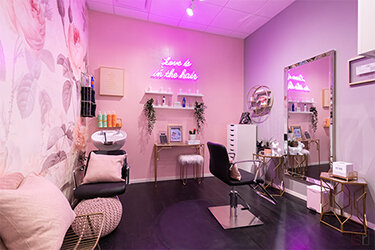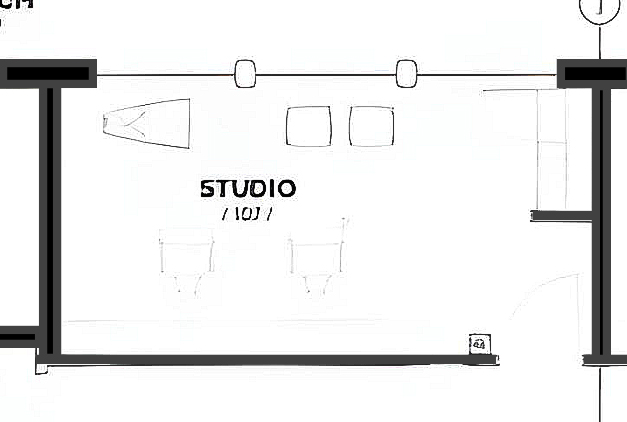Strategic Choices: Weighing the Advantage of Renting Out Versus Having a Salon Area to Optimize Long-Term Success and Financial Viability
When it comes to establishing a hair salon company, among the vital choices that owners need to carefully think about is whether to lease or own the area in which they run. The choice between renting out and owning a beauty salon room can have a significant influence on the long-lasting success and economic health of the service. Factors such as operational versatility, economic effects, and investment prospective play a crucial duty in this critical decision-making process. By exploring the advantages and disadvantages of each alternative, salon owners can make educated options that line up with their organization objectives and goals.

Benefits And Drawbacks of Renting
When thinking about the decision in between leasing a beauty salon space or possessing one, it is important to weigh the pros and disadvantages of leasing to make an informed selection. One key advantage of renting a beauty parlor space is the adaptability it uses. Renting enables salon proprietors to evaluate various areas or high end their business without the dedication of a long-term home loan. Additionally, leasing generally entails fewer in advance costs, making it a more easily accessible option for brand-new salon owners or those with spending plan constraints.

Financial Aspects to Consider

Thinking about the monetary ramifications of renting a salon space versus possessing one is vital for making a well-informed service choice. When evaluating the monetary elements, it is critical to examine the initial expenses related to each choice. Renting out a hair salon room generally calls for a safety down payment and monthly rental fee repayments, whereas possessing entails a deposit, home mortgage repayments, real estate tax, and upkeep expenses.
Additionally, the long-lasting financial implications differ between leasing and having. Renting out offers versatility however might result in higher collective expenses with time due to rental rises. On the various other hand, possessing a hair salon area provides potential equity development and the opportunity to build properties. It is necessary to conduct a cost-benefit evaluation to determine which option lines up best with your financial goals and company strategy.
Furthermore, think about the influence on money flow and profitability. Renting out may provide lower ahead of time expenses, allowing you to designate even more resources to advertising and business growth. On the other hand, possessing needs a significant first financial investment however might lead to set you back savings in the long run. Examining these monetary variables adequately will straight from the source assist you make a critical choice that maximizes your beauty parlor's long-term success and economic feasibility.
Functional Flexibility and Control
Ideal functional effectiveness plays an essential role in establishing the balance in between flexibility and control when determining between leasing and possessing a beauty salon area. Renting a hair salon area uses integral versatility as it permits easier adjustments to altering market problems, consumer choices, or service requirements. This versatility is specifically helpful for new hair salon owners or those wanting to evaluate different areas before committing long-lasting. In addition, renting supplies the benefit of not being tied down to a details property, allowing simpler moving if required.
On the other hand, possessing a hair salon space supplies a greater feeling of control over the residential property and its procedures. Owners have the liberty to personalize the room to their liking, carry out long-term approaches without the threat of lease terminations, and potentially construct equity in time. However, ownership additionally includes responsibilities such as building upkeep, insurance, and property taxes, which can influence the overall financial dedication.
Inevitably, the choice between renting and owning ought to take into consideration the preferred level of functional flexibility and control that straightens with the beauty parlor's lasting goals and vision.
Investment Prospective in Ownership
Given the functional factors to consider gone over earlier, discovering the investment capacity in salon possession clarifies the economic ramifications and lasting benefits that feature owning a hair salon area. Salon possession provides an one-of-a-kind opportunity for business owners to construct equity and possessions over time. By investing in a beauty parlor space, owners have the over here potential to benefit from property appreciation, which can function as an important property in the future. Additionally, having a salon provides security in terms of fixed home mortgage payments, offering predictability in monetary preparation contrasted to varying rental prices.
Furthermore, possession enables greater control over the room, making it possible for proprietors to customize and tailor the salon to their particular brand name and vision without the restrictions commonly enforced by landlords. This level of control can improve the overall customer experience and brand name identity, possibly leading to raised client retention and organization growth.
In terms of financial investment capacity, possessing a beauty parlor area can also open up possibilities for additional profits streams, such as renting extra area to other elegance professionals or incorporating retail sales within the salon. Nail salon. These varied earnings sources can contribute to the general financial health and wellness and sustainability of the business
Long-Term Stability and Growth
With a focus on sustainability and development gradually, developing long-term security and promoting growth are pivotal facets of beauty parlor possession. To make sure lasting stability, beauty salon owners should carefully think about factors such as location, market trends, and economic planning. Selecting between renting and possessing a beauty parlor area plays a significant duty in figuring out business's development capacity.
Renting out a salon room provides adaptability and reduced first prices, allowing owners to allot resources in the direction of boosting services and marketing initiatives. By possessing the room, beauty parlor proprietors have even more control over personalizing the residential property to match their brand and can benefit from lasting asset development.
Ultimately, the choice between renting and possessing a beauty parlor area should align with the owner's long-lasting service objectives and monetary goals. Whether focusing on flexibility or equity structure, a strategic technique to property ownership can significantly impact the beauty salon's security and development trajectory.
Final Thought
Finally, the decision between renting and owning a beauty parlor area requires a careful evaluation of monetary elements, operational versatility, investment possibility, and lasting security. Both alternatives feature their own set of pop over to this site benefits and disadvantages, and it is essential for hair salon owners to weigh these variables to enhance long-term success and economic practicality. Salon suites. Eventually, the choice in between renting out and having need to be based on a detailed analysis of individual organization goals and conditions